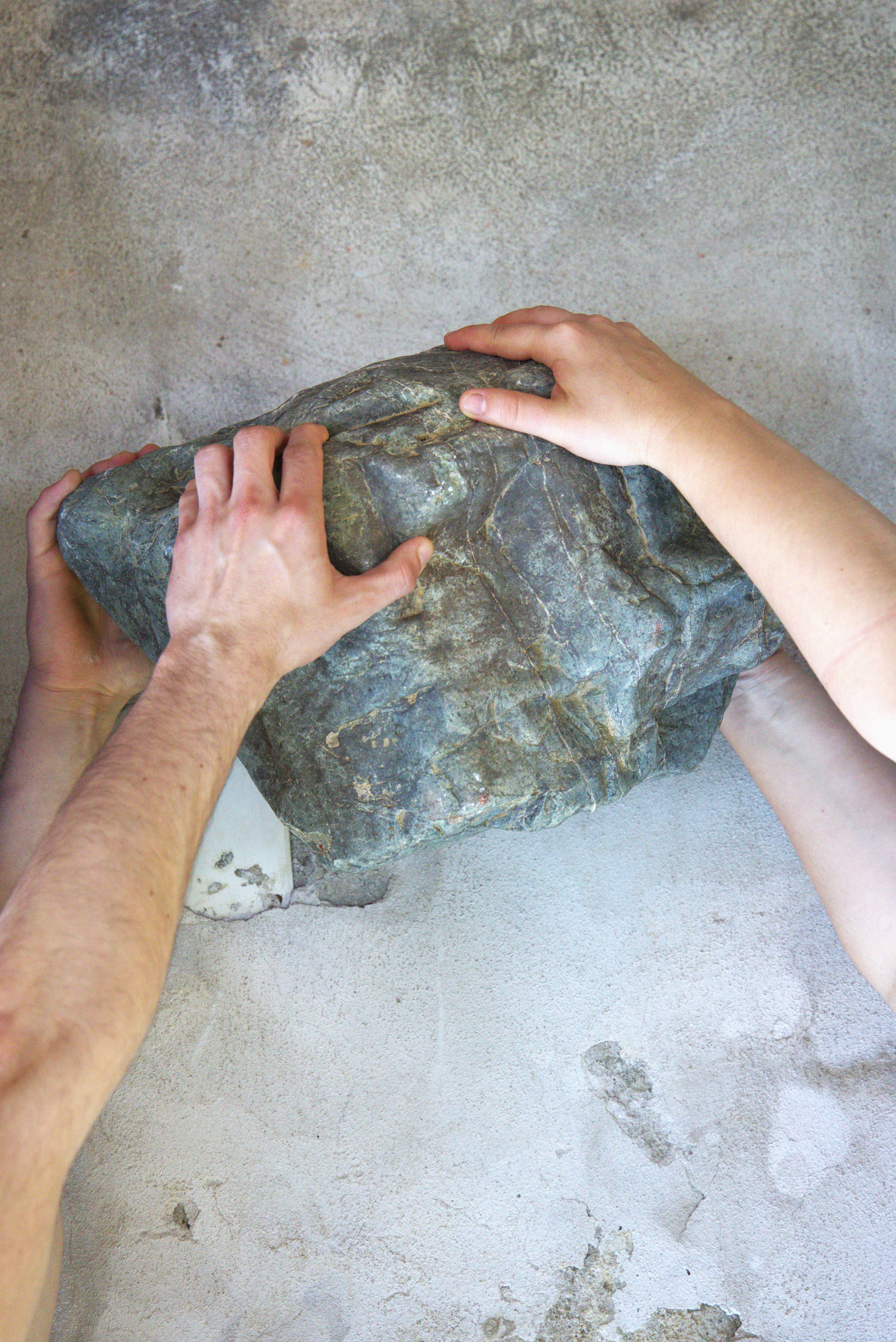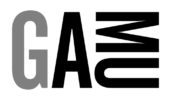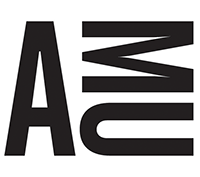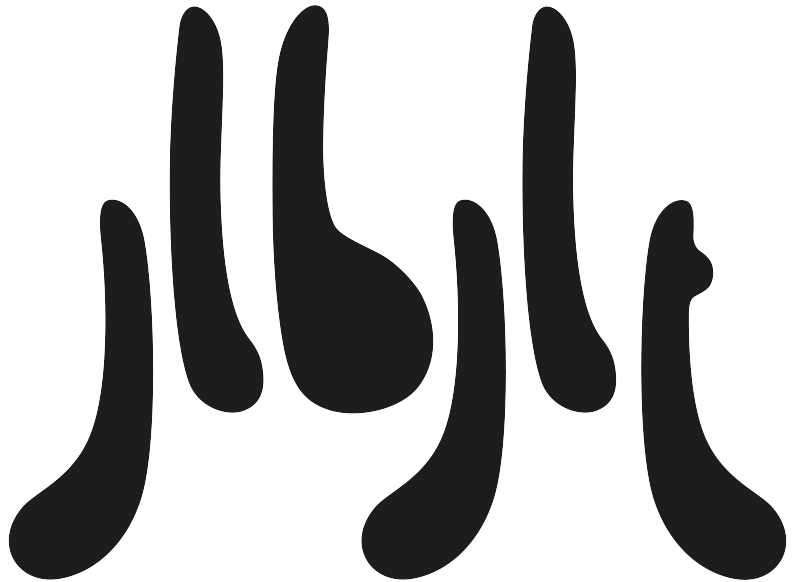April 7th – 8th, 2017
Charles University in Prague – Faculty of Arts and Goethe-Institut
Convened and Moderated by Baruch Gottlieb & Kateřina Krtilová
Vilém Flusser’s home town Prague is also a philosophical topos of his autobiography Bodenlos. This word, which has no direct translation in English, literally indicates that the floor or ground has fallen away, that one is without ground; Flusser recounts “[Bodenlos] refers not only the loss of all models of experience, knowledge and judgement, I realized, but also the loss of the structure connecting these models. Thus we have lost not only all models assigned to ‘Prague’ and considered them from now on as empty forms, but I had also lost the construction (namely the western tradition) supporting the models and subsequently understood they just provided rules for a meaningless game“ (Flusser: Bodenlos).
Bodenlosigkeit (being without firm ground) can be interpreted as a principle connecting Flusser’s philosophy of culture and his understanding of media. The starting point is in both cases a deep crisis of western thought, the “models” that determine our worldview. First, there is Flusser’s existential Bodenlosigkeit, which relativized the “models” of the Enlightenment Humanist tradition he was brought up in and characterized his life in exile after 1939, provoking Flusser to develop his philosophical trope “the freedom of the migrant“. Second, Flusser elaborates a media philosophy, looking into practices and techniques, models, structures and games, things and „non-things“ (Undinge), architectures and tools which shape culture and reality, knowledge and perception. Images, writing, calculation and computation constitute modes of consciousness and reality which can here be described only in relation to other „universes“. The freedom of the migrant seems to originate with the possibility of “jumping” from one universe to another in a radical questioning of all modes and models – in Flusser’s terms, with the ground falling away.
At the end of Flusser’s history of western culture, following the universe of linear writing, we arrive at the universe of computation. Computation is a technology which not only shapes thinking, but rather replaces it, allowing to mechanize (logical-mathematical) thinking. Computation produces “artificial intelligence” which can operate independent of human perception and temporality. Finally, computer technology turns its operators into its “functionaries”, acting within its rules, choosing from a given set of possibilities.
We wish to explore to what extent Flusser’s concept of “playing against the apparatus” is still possible within the universe of computation. Accepting – with Flusser or Friedrich Kittler – technology as a vital part of culture, the question remains how to critically understand computation and the different techniques and practices, tools and artworks which culture consists of. When does the understanding of one’s own condition merely follow technical, economic or political rules, in Flusser’s words “the program of the apparatus” and when or how does it allow for freedom in handling the apparatus? How can we interpret the concept of “the apparatus” in the context of digital technologies? And how can we understand culture not merely in terms of technological determinism but in a critical account of the technical conditions of knowledge, perception and thinking?
Organized by the Research group Media Theory/Philosophy, Charles University Prague. Partners: Goethe-Institut Tschechien, The Film and TV School of the Academy of Performing Arts (FAMU) in Prague, GAMU, Kompetenzzentrum Medienanthropologie, Bauhaus-Universität Weimar
The language of the symposium is English, simultaneous translation is not available. Free admission.
PROGRAM
Friday, April 7th
Charles University in Prague – Faculty of Arts, Náměstí Jana Palacha 2, Praha 1
Room 104
4–6.30 pm
Introduction by Kateřina Krtilová and Baruch Gottlieb
Presentations and discussion with Tomáš Dvořák and Daniel Irrgang
6.30–7 pm
Coffee break
7–8.30 pm
Flusser and the Apparatus
“Flusser Talk” with Steffi Winkler and a presentation of Jan Kulka’s “Pramítačka” (“Pre-jector”)
Saturday, April 8th
Goethe-Institut, Masarykovo nábřeží 32, Praha 1
10 am – 12.30 pm
Presentations and discussions with Anke Finger, Christoph Ernst and Klára Židková
12.30–1.30 pm
Lunch break
1.30–4 pm
Presentations and discussion with Mike Anusas and Michal Šimůnek
PARTICIPANTS
Mike Anusas, Tomáš Dvořák, Christoph Ernst, Anke Finger, Baruch Gottlieb, Daniel Irrgang, Kateřina Krtilová, Jan Kulka, Michal Šimůnek, Steffi Winkler, Klára Židková
Mike Anusas is a designer, anthropologist and educator. He lives in Glasgow, Scotland, where he teaches design at the University of Strathclyde. He is a researcher within the European Research Council (ERC) project Knowing From the Inside: Anthropology, Art, Architecture & Design (KFI), led by the University of Aberdeen. His work explores anthropological approaches to design and the possibilities of designing and making beyond the ontology of the object. He develops this work with communities of practice in education, industry, government and the public sector. He has written on design, making and perception for international journals, Design Issues and Cultural Anthropology. He is currently working on a thesis on design and form, edited collections on “surfaces” and “electrical things” with colleagues in Europe and North and South America and the exploration of future design pedagogies with Bauhaus Dessau.
Tomáš Dvořák, Ph.D. is a head of Theory and History and Research of the Department of Photography at the Film and TV School of the Academy of Performing Arts in Prague. He focuses on the theory and history of photography, media, and visual culture. His publications include Temporalita (nových) médií [The temporality of (new) media], 2016; Současné přístupy v historické epistemologii [Current approaches in historical epistemology], 2013; Sběrné suroviny: texty a obrazy nedávné minulosti, [Collected material: texts and images from recent history], 2009, or Kapitoly z dějin a teorie médií [Chapters from the history and theory of media], 2010.
PD Dr. Christoph Ernst, studied German philology, philosophy and history at the University of Mainz, PhD in 2005 (Essayistische Medienreflexion. Die Idee des Essayismus und die Frage nach den Medien [Essayistic media reflection. Die Idea of essayism and the question of media], Bielfeld, transcript 2005). Post-Doc & Assistant Professor at the University Erlangen-Nuremberg, Habilitation in media studies in 2015 (Diagrammatische Denkbilder. Theoretische Studien zur Medien- und Filmästhetik der Diagrammatik [Diagrammatic images. Theoretical approaches to media and film aesthetics of diagrammatics], forthcoming in 2017). Publications and main research interests in media theory, diagrammatic thinking, theories of tacit knowledge, intercultural perspectives on media, film studies, digital media, recently esp. interfaces.
Anke Finger’s, Ph.D. is Professor of German Studies, Media Studies and Comparative Literature in the Dept. of Literatures, Cultures, and Languages and Assistant Director of Digital Humanities and Media Studies at the University of Connecticut’s Humanities Institute. Her research merges Media Studies, Media Theory, Digital Humanities, Interart Studies, Modernism, and Intercultural Communication. She is currently at work on two major projects: a multi-media publication on Flusser, art, and hypertext; and a hybrid project, Everyday Modernism, combining a print monograph with digital scholarship including video and digital storytelling. A co-founder and co-editor (2005-2015) of the online journal Flusser Studies, her work in media studies and theory originates from ongoing scholarship about the Czech-Brazilian media philosopher Vilém Flusser that has inspired her current interest in visualization and digital publishing. She is also translating Angenommen [Suppose That], Flusser’s only film script, as an integrated print project that will generate accompanying work in video format. She is Professor of German Studies, Media Studies and Comparative Literature in the Dept. of Literatures, Cultures, and Languages and Assistant Director of Digital Humanities and Media Studies at the University of Connecticut’s Humanities Institute.
Dr. phil. Baruch Gottlieb trained as a filmmaker at Concordia University, has been working in digital art with specialization in public art since 1999. From 2005-2008 he was assistant professor of Media Art at Yonsei University Graduate School for Communication and Arts in Seoul, Korea where he founded and still directs, with Ji Yoon Yang, Korea‘s first Sound Art festival SFXSeoul. He is active member of the Telekommunisten, Arts & Economic Group and laboratoire de déberlinisation artist collectives. Author of Gratitude for Technology (ATROPOS 2009) and A Political Economy of the Smallest Things (ATROPOS 2016), he currently lectures in philosophy of digital art at the University of Arts Berlin and is fellow of the Vilém Flusser Archiv. He is curator of the exhibition series Flusser & the Arts based on the philosophical writings of Vilém Flusser, which, after premiering at ZKM, Karlsruhe and has traveled to AdK Berlin, West, the Hague and now GAMU Prague. He writes extensively on digital media, digital archiving, generative and interactive processes, digital media for public space and on social and political aspects of networked media.
Daniel Irrgang is a researcher at The Karlsruhe University of Arts and Design (HfG). Until 2016 he was the scientific supervisor of the Vilém Flusser Archive, and a researcher in the project Archaeology/Variantology of the Media (co-editor of vol. 4 and 5 of Variantology – On Deep Time Relations of Arts, Sciences and Technologies and of the German edition, upcoming in autumn 2013). In 2011 he graduated with an M.A. in Media Studies. Currently, he is writing his doctoral thesis about Diagrammatics as a Cultura experimentalis. Together with Clemens Jahn, he is editing the proceedings of the “Forum on the Genealogy of Media Thinking”, initiated by Siegfried Zielinski, with guests like Peter Weibel, Boris Groys, or Hans Belting.
Dr. des. Kateřina Krtilová is a researcher and coordinator of the Kompetenzzentrum Medienanthropologie [Center for Media Anthropology] at Bauhaus-Universität Weimar. In 2016 she finished her dissertation on Vilém Flusser’s media philosophy in Weimar. In her research she focuses on media philosophy and the relations between reflexivity, performativity and materiality. She initiated and organized a number of German-Czech projects in the field of media theory and philosophy, resulting in 2015 in the publication Medienwissenschaft. Východiska a aktuální pozice německé filosofie a teorie médií and Ob/ne/z/jevení (forthcoming in spring 2017), both edited together with Kateřina Svatoňová. In 2016 Kateřina Krtilová and Kateřina Svatoňová founded the research group Teorie/filosofie médií [Media theory/philosophy] at the Faculty of Arts, Charles University Prague.
Jan Kulka studied classical film animation at Tomas Bata University in Zlín and film editing at the Film and TV School of the Academy of Performing Arts in Prague. He develops specific projectors (in 2011 the Magic Box, inspired by the research of subjective visual impressions of Jan Evangelista Purkyně and in 2016 the “pre-jector”). In cooperation with the Czech National Film Archive he organizes workshops focusing on analogue (optical-mechanical) film technology and principles of the moving image. As a musician Jan Kulka works with musical improvisation (in the ensembles Stratocluster and Pražský Improvizační Orchestr).
Michal Šimůnek, Ph.D. is a sociologist and assistant professor at the Faculty of Management, University of Economics in Prague and at the Faculty of Education, University of South Bohemia in České Budějovice. He also closely cooperates with the Film and TV School of the Academy of Performing Arts in Prague. His research and teaching focuses on epistemology, methodology and praxis of visual and digital social sciences and on the role of media technologies in science and consumer culture. In recent years, he has been engaged in promoting qualitative visual and digital research methods, experimental ways of scientific storytelling and creative approaches to social research. Currently, he deals with practices of creative misuse, reuse, re-purpose and reproduction of media technologies (particularly technical images) in everyday life, popular consumer culture, art and science.
Steffi Winkler is currently pursuing doctoral research at the Vilém Flusser Archive, University of the Arts, Berlin. She has been a visiting lecturer at the Institute for Media and Communication Studies, Freie Universität Berlin, since 2011. She co-initiated and co-organised the international symposium series on Medienkultur nach Vilém Flusser [Media Culture after Vilém Flusser] in Natal 2012 and Berlin 2014, and moreover co-edited the conference proceedings Vom Begriff zum Bild [From Concept to Image] 2013 and Play it again, Vilém! Medien und Spiel im Anschluss an Vilém Flusser [Media and Game following Vilém Flusser] 2015. Within the scope of the exhibition Withouth Firm Ground. Vilém Flusser and the Arts she co-initiated and moderated the Flusser Talks series, in Karlsruhe and Berlin 2015, as well as the symposium Transcoding Flusser: Synthetic thinking in The Hague 2016. Research areas include: philosophy of communication and media, political theory, multimedia publishing.
Klára Židková is postgraduate student at Department of Philosophy at Masaryk University in Brno in the Czech Republic. At the same university she has completed a Bachelor´s degree in philosophy and journalism. In her Master´s thesis at the department of philosophy she has dealt with topics of manipulation and representation in the medium of photography. In her Ph.D. thesis she focuses on the work of Vilém Flusser. She tries to examine Flusser’s thinking in the context of the most influential philosophical sources of Flusser’s thoughts. From 2011 to 2013 she worked for the local newspaper Brněnský deník Rovnost, writing about the history, cultural politics, architecture and urbanism in Brno. She has also externally co-operated with other journals in the field of art, architecture and photography.
<- THE EXHIBITION






